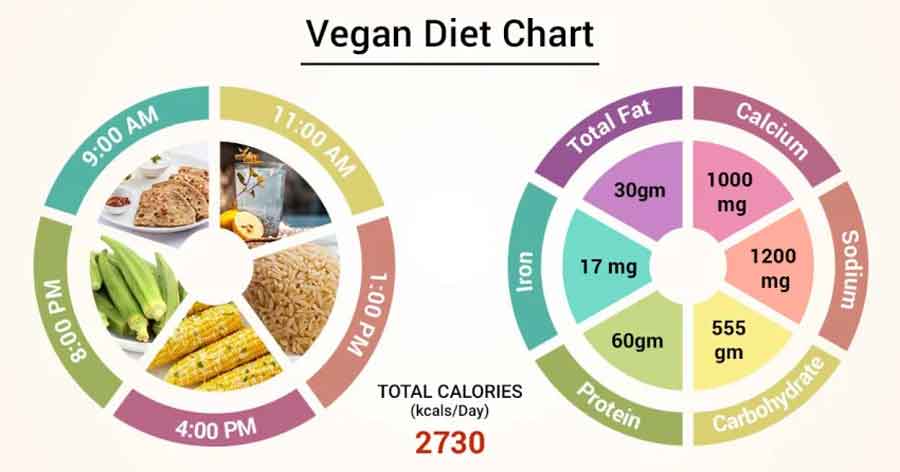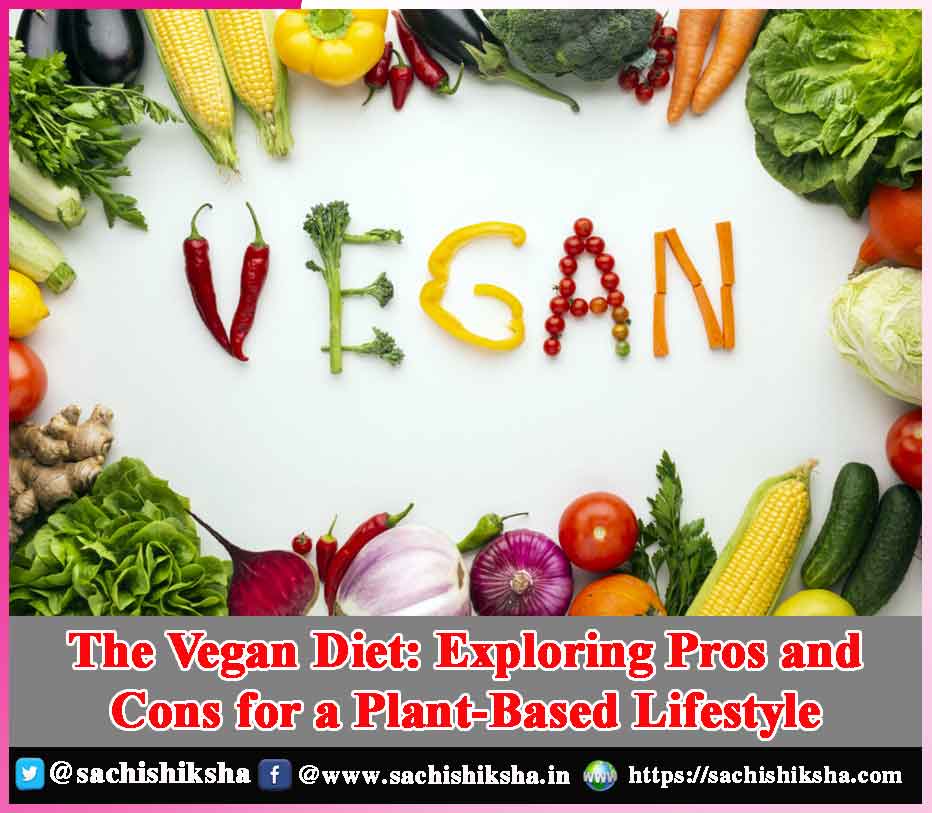The Vegan Diet: Exploring Pros and Cons for a Plant-Based Lifestyle
Introduction: Welcome to the world of vibrant flavours, sustainable choices, and compassionate living. As the demand for ethical and eco-friendly alternatives continues to surge, the vegan diet has emerged as a powerful movement. Beyond a mere culinary preference, veganism represents a lifestyle that embraces plant-based nutrition, champions animal rights, and strives to protect our planet.
Also Read:
- Correct Diet & Exercise will Increase Height, Thyroid can also Stop Height
- What Should Be The Diet In Old Age
- Pregnancy and Nutrition
- PROTEIN- WHAT & WHY A MUST
- World Health Day
- One Hour Daily for Your Health
Table of Contents
Enticing Benefits:

Environmental Friendly:
But the appeal of the vegan diet extends far beyond personal health. It reaches into the very heart of environmental sustainability. Animal agriculture, a significant contributor to deforestation, greenhouse gas emissions, and water pollution, places an immense strain on our planet. By embracing a vegan lifestyle, you become an eco-warrior, actively contributing to the conservation of natural resources, the preservation of biodiversity, and the mitigation of climate change. Your plate becomes a symbol of positive change, as you reduce your carbon footprint and pave the way for a more sustainable future.
A Transforming Journey:
So, step into the world of veganism where the culinary landscape expands, offering a bountiful array of delicious alternatives and culinary adventures. From mouth-watering plant-based burgers to delectable dairy-free desserts, the vegan diet unlocks a world of creativity and exploration in the kitchen. Discover the art of crafting vibrant meals, experimenting with new flavours, and savouring the richness of plant-based ingredients. The vegan lifestyle celebrates the harmonious coexistence of flavour, health, and ethics, inviting you to embark on a truly transformative journey.
As we dive deeper into the pros and cons of the vegan diet, let us examine the potential challenges that accompany this lifestyle choice. From nutritional considerations to social dynamics, we will navigate the complexities and provide you with the knowledge you need to make informed decisions about your dietary choices. Join us as we unravel the layers of the vegan lifestyle, empowering you to embrace the benefits while addressing the potential drawbacks. The vegan revolution awaits – a world of vibrant health, environmental consciousness, and compassionate living lies at your fingertips.
Pros of a Vegan Diet
Health Benefits:
Adopting a well-planned vegan diet can offer numerous health advantages. Studies indicate that vegans tend to have lower cholesterol levels, reduced risk of heart disease, and lower blood pressure compared to non-vegans. Plant-based diets are typically rich in fiber, antioxidants, and essential vitamins, promoting overall well-being and potentially reducing the risk of certain chronic diseases.
Environmental Sustainability:
The environmental impact of animal agriculture is a growing concern. Choosing a vegan lifestyle can significantly reduce an individual’s carbon footprint. Animal agriculture contributes to deforestation, greenhouse gas emissions, and water pollution. By avoiding animal products, vegans help conserve natural resources, minimize pollution, and contribute to a more sustainable future.
Ethical Considerations:
Many individuals adopt a vegan lifestyle due to ethical concerns about animal welfare. Vegans oppose the exploitation and suffering of animals in various industries. By avoiding animal-derived products, they promote compassion, respect, and kindness towards all sentient beings, aligning their choices with their moral beliefs.
Variety and Creativity:
Embracing a vegan diet encourages individuals to explore a diverse range of plant-based foods. This can lead to increased creativity in the kitchen, discovering new flavors, and experimenting with innovative recipes. Vegan cuisine has evolved significantly, offering delicious alternatives to traditional animal-based dishes, allowing individuals to enjoy a broad array of culinary experiences.
Cons of a Vegan Diet
Nutritional Challenges:
A poorly planned vegan diet may lead to certain nutritional deficiencies, primarily in nutrients like vitamin B12, iron, calcium, omega-3 fatty acids, and zinc. These deficiencies can be mitigated through careful meal planning, including fortified foods and appropriate supplements. It is crucial for vegans to educate themselves about balanced nutrition to ensure they meet their dietary requirements.
Limited Food Choices:
Following a vegan diet might initially pose challenges when dining out or in social settings. Not all restaurants or establishments cater extensively to vegan options, which can limit choices and potentially affect social interactions. However, with the growing popularity of veganism, many establishments now offer plant-based alternatives, making it easier to find suitable options.
Potential Social Isolation:
Choosing a vegan lifestyle may lead to a sense of isolation or criticism from friends, family, or colleagues who may not understand or share the same values. Social support is essential in maintaining long-term dietary changes, and it is important to surround oneself with like-minded individuals or seek support from vegan communities to counteract feelings of isolation.
Individual Variability:
Every individual’s dietary needs and responses differ. While a vegan diet can be healthy when well-planned, it may not suit everyone. Some individuals may experience digestive issues or difficulty meeting their nutritional needs due to personal health conditions or preferences. Consulting a healthcare professional or registered dietitian can help address individual concerns and develop a personalized vegan meal plan.
Conclusion:
Adopting a vegan lifestyle offers numerous advantages, including potential health benefits, reduced environmental impact, and ethical considerations. However, it is essential to be aware of potential challenges, such as nutritional deficiencies and social factors. Making an informed decision about adopting a vegan diet is the key.














































